中華人民共和國高等教育法(2018修正)(中英文對照版)
1998年8月29日第九屆全國人民代表大會常務委員會第四次會議通過 根據2015年12月27日第十二屆全國人民代表大會常務委員會第十八次會議《關於修改〈中華人民共和國高等教育法〉的決定》第一次修正 根據2018年12月29日第十三屆全國人民代表大會常務委員會第七次會議《關於修改〈中華人民共和國電力法〉等四部法律的決定》第二次修正
法律文本
中華人民共和國高等教育法(2018修正)
Higher Education Law of the People’s Republic of China (2018 Revision)
(1998年8月29日第九屆全國人民代表大會常務委員會第四次會議通過 根據2015年12月27日第十二屆全國人民代表大會常務委員會第十八次會議《關於修改〈中華人民共和國高等教育法〉的決定》第一次修正 根據2018年12月29日第十三屆全國人民代表大會常務委員會第七次會議《關於修改〈中華人民共和國電力法〉等四部法律的決定》第二次修正)
(Adopted at the 4th Session of the Standing Committee of the 9th National People's Congress on August 29, 1998; amended for the first time according to the Decision on Revising the Higher Education Law of the People's Republic of China at the 18th Session of the Standing Committee of the 12th National People's Congress on December 27, 2015; and amended for the second time according to the Decision on Revising Four Laws including the Electric Power Law of the People's Republic of China at the 7th Session of the Standing Committee of the 13th National People's Congress on December 29, 2018)
第一章 總 則
Chapter 1 General Provisions
第一條 為了發展高等教育事業,實施科教興國戰略,促進社會主義物質文明和精神文明建設,根據憲法和教育法,制定本法。
Article 1 This Law is enacted in accordance with the Constitution and the Education Law with a view to developing higher education, implementing the strategy of developing the country by relying on science and education, and promoting socialist material and ethical progress.
第二條 在中華人民共和國境內從事高等教育活動,適用本法。
Article 2 This Law shall be applicable to higher education conducted within the territory of the People's Republic of China.
本法所稱高等教育,是指在完成高級中等教育基礎上實施的教育。
For purposes of this Law, higher education means education conducted on the basis of completion of senior secondary education.
第三條 國家堅持以馬克思列寧主義、毛澤東思想、鄧小平理論為指導,遵循憲法確定的基本原則,發展社會主義的高等教育事業。
Article 3 In developing socialist higher education, the State adheres to Marxism-Leninism, Mao Zedong Thought and Deng Xiaoping Theory as its guide and follows the basic principles laid down in the Constitution.
第四條 高等教育必須貫徹國家的教育方針,為社會主義現代化建設服務、為人民服務,與生產勞動和社會實踐相結合,使受教育者成為德、智、體、美等方面全面發展的社會主義建設者和接班人。
Article 4 Higher education shall be conducted in adherence to the educational principles of the State, in the service of the socialist modernization drive and the people and in combination with productive labor and social practice, in order that the educatees shall become the socialist builders and successors, who are developed in an all-round way--morally, intellectually, physically and aesthetically.
第五條 高等教育的任務是培養具有社會責任感、創新精神和實踐能力的高級專門人才,發展科學技術文化,促進社會主義現代化建設。
Article 5 The task of higher education is to train people to become senior specialists imbued with the spirit of sense of social responsibility, creativeness and the ability of practice, to develop science, technology and culture and to promote the socialist modernization drive.
第六條 國家根據經濟建設和社會發展的需要,制定高等教育發展規劃,舉辦高等學校,並采取多種形式積極發展高等教育事業。
Article 6 In light of the need of economic and social development, the State formulates plans for the development of higher education, runs higher education institutions and promotes higher education in various ways.
國家鼓勵企業事業組織、社會團體及其他社會組織和公民等社會力量依法舉辦高等學校,參與和支持高等教育事業的改革和發展。
The State encourages all sectors of society, including enterprises, institutions, public organizations or groups as well as individual citizens, to run higher education institutions in accordance with law and to participate in and support the reform and development of higher education.
第七條 國家按照社會主義現代化建設和發展社會主義市場經濟的需要,根據不同類型、不同層次高等學校的實際,推進高等教育體制改革和高等教育教學改革,優化高等教育結構和資源配置,提高高等教育的質量和效益。
Article 7 In light of the needs of the socialist modernization drive and of development of a socialist market economy, the State, on the basis of the different types and levels of the existing higher education institutions, advances the restructuring of higher education and the reform of teaching in higher education institutions, and optimizes the structure of higher education and the distribution of resources, in order to improve the quality and increase the efficiency of higher education.
第八條 國家根據少數民族的特點和需要,幫助和支持少數民族地區發展高等教育事業,為少數民族培養高級專門人才。
Article 8 The State, in light of the characteristics and needs of the ethnic groups, assists and supports the development of higher education in regions inhabitated by ethnic peoples for the purpose of training senior specialists among them.
第九條 公民依法享有接受高等教育的權利。
Article 9 Citizens shall, in accordance with law, enjoy the right to receive higher education.
國家采取措施,幫助少數民族學生和經濟困難的學生接受高等教育。
The State takes measures to enable students from minority nationalities and students with financial difficulties to receive higher education.
高等學校必須招收符合國家規定的錄取標準的殘疾學生入學,不得因其殘疾而拒絕招收。
Higher education institutions shall enroll disabled students who are up to the admission qualifications prescribed by the State, they may not refuse to enroll them on account of their disability.
第十條 國家依法保障高等學校中的科學研究、文學藝術創作和其他文化活動的自由。
Article 10 The State, in accordance with law, ensures the freedoms of scientific research, literary and artistic creation and other cultural activities conducted in higher education institutions.
在高等學校中從事科學研究、文學藝術創作和其他文化活動,應當遵守法律。
Research, literary and artistic creation and other cultural activities in higher education institutions shall be conducted in compliance with law.
第十一條 高等學校應當面向社會,依法自主辦學,實行民主管理。
Article 11 Higher education institutions shall be oriented to the needs of society and shall run the schools on their own and in accordance with law and administer democratic management.
第十二條 國家鼓勵高等學校之間、高等學校與科學研究機構以及企業事業組織之間開展協作,實行優勢互補,提高教育資源的使用效益。
Article 12 The State encourages collaboration between higher education institutions and their collaboration with research institutes, enterprises and institutions in order that they all can draw on each other's strengths and increase the use efficiency of educational resources.
國家鼓勵和支持高等教育事業的國際交流與合作。
The State encourages and supports international exchange and cooperation in higher education.
第十三條 國務院統一領導和管理全國高等教育事業。
Article 13 The State Council shall provide unified guidance and administration for higher education throughout the country.
省、自治區、直轄市人民政府統籌協調本行政區域內的高等教育事業,管理主要為地方培養人才和國務院授權管理的高等學校。
The people's governments of provinces, autonomous regions and municipalities directly under the Central Government shall undertake overall coordination of higher education in their own administrative regions and administer the higher education institutions that mainly train local people and the higher education institutions that they are authorized by the State Council to administer.
第十四條 國務院教育行政部門主管全國高等教育工作,管理由國務院確定的主要為全國培養人才的高等學校。國務院其他有關部門在國務院規定的職責範圍內,負責有關的高等教育工作。
Article 14 The administrative department for education under the State Council shall be in charge of the work of higher education throughout the country and administer the affairs of the higher education institutions designated by the State Council as schools that mainly train people for the country as a whole. Other departments concerned under the State Council shall be responsible for the work related to higher education within the limits of their duties defined by the State Council.
第二章 高等教育基本制度
Chapter II Basic System of Higher Education
第十五條 高等教育包括學曆教育和非學曆教育。
Article 15 Higher education includes education for academic qualifications and education for non-academic qualifications.
高等教育采用全日制和非全日制教育形式。
Higher education takes both full-time and part-time forms.
國家支持采用廣播、電視、函授及其他遠程教育方式實施高等教育。
The State supports higher education conducted through radio, television, correspondence and other long-distance methods.
第十六條 高等學曆教育分為專科教育、本科教育和研究生教育。
Article 16 Higher education for academic qualifications includes special course education, regular course education and graduate program.
高等學曆教育應當符合下列學業標準:
The following academic levels shall be attained through higher education for academic qualifications:
(一)專科教育應當使學生掌握本專業必備的基礎理論、專門知識,具有從事本專業實際工作的基本技能和初步能力;
1. Special course education shall enable students to grasp the basic theories and special knowledge which the course must offer and to acquire the basic skills and the preliminary ability of practical work in the fields of their specialized subjects.
(二)本科教育應當使學生比較系統地掌握本學科、專業必需的基礎理論、基本知識,掌握本專業必要的基本技能、方法和相關知識,具有從事本專業實際工作和研究工作的初步能力;
(II) Regular course education shall enable students to grasp more systematically the basic theories and knowledge required by the branches of learning or specialized subjects offered, to grasp the basic skills, methods and relevant knowledge necessitated by their specialized subjects, and to acquire the preliminary ability of practical work and research in the fields of their specialized subjects.
(三)碩士研究生教育應當使學生掌握本學科堅實的基礎理論、系統的專業知識,掌握相應的技能、方法和相關知識,具有從事本專業實際工作和科學研究工作的能力。博士研究生教育應當使學生掌握本學科堅實寬廣的基礎理論、系統深入的專業知識、相應的技能和方法,具有獨立從事本學科創造性科學研究工作和實際工作的能力。
(III) The graduate program for candidates working for MA shall enable candidates to grasp firmly the basic theories in their branches of learning and grasp the systematic knowledge of their specialized subjects, to grasp the skills and methods and relevant knowledge required, and to acquire the ability of practical work and research in the fields of their specialized subjects. The graduate program for candidates working for Ph.D. shall enable candidates to grasp firmly the breadth of the basic theories and the systematic and profound knowledge of the specialized subjects and grasp the skills and methods required by their branches of learning, and to acquire the ability of creative research on their own and of practical work in the fields of their specific branches of learning.
第十七條 專科教育的基本修業年限為二至三年,本科教育的基本修業年限為四至五年,碩士研究生教育的基本修業年限為二至三年,博士研究生教育的基本修業年限為三至四年。非全日制高等學曆教育的修業年限應當適當延長。高等學校根據實際需要,可以對本學校的修業年限作出調整。
Article 17 The basic length of schooling for special course education is from two to three years, for regular course education it is from four to five years, for graduate program for candidates working for MA it is from two to three years, and for graduate program for candidates working for PhD it is from three to four years. The length of schooling for non-full-time higher education for academic qualifications shall be properly extended. Higher education institutions may, in light of actual needs, readjust the length of schooling thereof.
第十八條 高等教育由高等學校和其他高等教育機構實施。
Article 18 Higher education shall be conducted by higher education institutions and other higher education organizations.
大學、獨立設置的學院主要實施本科及本科以上教育。高等專科學校實施專科教育。經國務院教育行政部門批準,科學研究機構可以承擔研究生教育的任務。
Universities, independent colleges mainly implement undergraduate and higher education. Colleges and universities shall conduct special course education. With the approval of the administrative department for education under the State Council, research institutes may undertake the graduate program.
其他高等教育機構實施非學曆高等教育。
Other higher education organizations shall conduct higher education for non-academic qualifications.
第十九條 高級中等教育畢業或者具有同等學力的,經考試合格,由實施相應學曆教育的高等學校錄取,取得專科生或者本科生入學資格。
Article 19 Graduates from senior middle schools and people with the same educational level, who have passed the entrance examinations, shall be enrolled by higher education institutions that offer the necessary education for academic qualifications and shall acquire the status of special course students or undergraduates.
本科畢業或者具有同等學力的,經考試合格,由實施相應學曆教育的高等學校或者經批準承擔研究生教育任務的科學研究機構錄取,取得碩士研究生入學資格。
Graduates from universities and people with the same educational level, who have passed the entrance examinations, shall be enrolled by higher education institutions that offer the necessary education for academic qualifications or by research institutes that have obtained approval of undertaking the graduate program, and shall acquire the status of candidates working for MA.
碩士研究生畢業或者具有同等學力的,經考試合格,由實施相應學曆教育的高等學校或者經批準承擔研究生教育任務的科學研究機構錄取,取得博士研究生入學資格。
People who have completed the graduate program and people who have the same educational level, having passed the entrance examinations, shall be enrolled by higher education institutions that offer the necessary education for academic qualifications or research institutes that have obtained approval of undertaking the graduate program, and shall acquire the status of candidates working for Ph.D.
允許特定學科和專業的本科畢業生直接取得博士研究生入學資格,具體辦法由國務院教育行政部門規定。
Specific measures for allowing graduates of special branches of learning or specialized subjects directly to obtain the status of candidates working for Ph.D. shall be formulated by the administrative department for education under the State Council.
第二十條 接受高等學曆教育的學生,由所在高等學校或者經批準承擔研究生教育任務的科學研究機構根據其修業年限、學業成績等,按照國家有關規定,發給相應的學曆證書或者其他學業證書。
Article 20 Students receiving higher education for academic qualifications shall be issued appropriate academic qualification certificates or other education certificates by their respective higher education institutions or research institutes that have obtained approval of undertaking the graduate program, on the basis of their length of study, academic records and so on and in accordance with the relevant regulations of the State.
接受非學曆高等教育的學生,由所在高等學校或者其他高等教育機構發給相應的結業證書。結業證書應當載明修業年限和學業內容。
Students receiving higher education for non-academic qualifications shall be granted appropriate diplomas by their respective higher education institutions or other higher education organizations. In the diplomas shall be recorded the length of study and the subjects studied.
第二十一條 國家實行高等教育自學考試制度,經考試合格的,發給相應的學曆證書或者其他學業證書。
Article 21 The State applies a system of higher education examinations for self-taught people, under which those who have passed the examinations shall be issued appropriate academic qualification certificates or other education certificates.
第二十二條 國家實行學位制度。學位分為學士、碩士和博士。
Article 22 The State applies a system of academic degree. Degrees are divided into bachelor's, master's and doctor's degrees.
公民通過接受高等教育或者自學,其學業水平達到國家規定的學位標準,可以向學位授予單位申請授予相應的學位。
Citizens who, through receiving higher education or self-teaching, have met the qualifications for academic degrees in terms of their educational level as prescribed by the State, may apply to degree-conferring bodies for the issue of appropriate degrees.
第二十三條 高等學校和其他高等教育機構應當根據社會需要和自身辦學條件,承擔實施繼續教育的工作。
Article 23 Higher education institutions and other higher education organizations shall undertake continuing education in light of social needs and their own conditions for offering such education.
第三章 高等學校的設立
Chapter III Establishment of Higher Education Institutions
第二十四條 設立高等學校,應當符合國家高等教育發展規劃,符合國家利益和社會公共利益。
Article 24 Higher education institutions shall be established in accordance with State plans for the development of higher education and in keeping with the interests of the State and the public.
第二十五條 設立高等學校,應當具備教育法規定的基本條件。
Article 25 The basic conditions as provided for in the Education Law shall be fulfilled for establishment of a higher education institution.
大學或者獨立設置的學院還應當具有較強的教學、科學研究力量,較高的教學、科學研究水平和相應規模,能夠實施本科及本科以上教育。大學還必須設有三個以上國家規定的學科門類為主要學科。設立高等學校的具體標準由國務院制定。
Universities and independent colleges shall, in addition, have a stronger staff for teaching and research, a higher level of teaching and research, as well as a necessary size of the student body, in order that they can offer regular course education and education at a higher level. Universities must also have more than three national disciplines prescribed as the main disciplines. The specific requirements for establishment of higher education institutions shall be formulated by the State Council.
設立其他高等教育機構的具體標準,由國務院授權的有關部門或者省、自治區、直轄市人民政府根據國務院規定的原則制定。
The specific requirements for establishment of other higher education organizations shall be drawn up by the relevant departments authorized by the State Council or by the people's governments of provinces, autonomous regions and municipalities directly under the Central Government in accordance with the principles laid down by the State Council.
第二十六條 設立高等學校,應當根據其層次、類型、所設學科類別、規模、教學和科學研究水平,使用相應的名稱。
Article 26 The name to be adopted by a higher education institution established shall be commensurate with its administrative level, the category it belongs to, the subjects it offers, the size of its student body and its level of teaching and research.
第二十七條 申請設立高等學校的,應當向審批機關提交下列材料:
Article 27 For establishment of a higher education institution, the following materials shall be submitted to the approving authority:
(一)申辦報告;
1. an application report;
(二)可行性論證材料;
2. feasibility study materials;
(三)章程;
(III) Articles of association;
(四)審批機關依照本法規定要求提供的其他材料。
(IV) other materials required by the examining and approving authority in accordance with the provisions of this Law.
第二十八條 高等學校的章程應當規定以下事項:
Article 28 The regulations of a higher education institution shall include the following:
(一)學校名稱、校址;
1. name and address of the school;
(二)辦學宗旨;
(II) the aim of the school;
(三)辦學規模;
(III) Scale of the school;
(四)學科門類的設置;
4. disciplines;
(五)教育形式;
(V) forms of education;
(六)內部管理體制;
(VI) internal management system;
(七)經費來源、財產和財務制度;
(VII) sources of funds, property, and financial systems;
(八)舉辦者與學校之間的權利、義務;
(VIII) the rights and obligations of sponsors and the institution;
(九)章程修改程序;
(IX) Procedures for modifying the articles of association; and
(十)其他必須由章程規定的事項。
(X) other items that must be included in the regulations.
第二十九條 設立實施本科及以上教育的高等學校,由國務院教育行政部門審批;設立實施專科教育的高等學校,由省、自治區、直轄市人民政府審批,報國務院教育行政部門備案;設立其他高等教育機構,由省、自治區、直轄市人民政府教育行政部門審批。審批設立高等學校和其他高等教育機構應當遵守國家有關規定。
Article 29 The establishment of higher education institutions for undergraduate education or above shall be subject to examination and approval by the administrative department for education under the State Council; the establishment of higher education institutions for special course education shall be subject to examination and approval by the people's governments of provinces, autonomous regions and municipalities directly under the Central Government and record-filing with the administrative department for education under the State Council; the establishment of other higher education organizations shall be subject to the examination and approval by administrative departments for education of the people's governments of provinces, autonomous regions and municipalities directly under the Central Government. The examination and approval of the establishment of higher education institutions and other higher education organizations shall abide by the relevant provisions of the State.
審批設立高等學校,應當委托由專家組成的評議機構評議。
A panel composed of specialists shall be entrusted with the appraisal of the examination and approval of the establishment of higher education institutions.
高等學校和其他高等教育機構分立、合並、終止,變更名稱、類別和其他重要事項,由本條第一款規定的審批機關審批;修改章程,應當根據管理權限,報國務院教育行政部門或者省、自治區、直轄市人民政府教育行政部門核準。
The division, amalgamation, termination, and alteration of the names, categories or other important matters of higher education institutions and other higher education organizations shall be subject to examination and approval by the approving authorities specified in the first paragraph of this Article; amendment of regulations shall be subject to verification by the administrative department for education under the State Council or the administrative departments for education under the people's governments of provinces, autonomous regions and centrally-administered municipalities.
第四章 高等學校的組織和活動
Chapter 4 Organization and Activities of Higher Education Institutions
第三十條 高等學校自批準設立之日起取得法人資格。高等學校的校長為高等學校的法定代表人。
Article 30 A higher education institution shall acquire the status of a legal person from the date on which its establishment is approved. The principal of a higher education institution shall be the legal representative of such institution.
高等學校在民事活動中依法享有民事權利,承擔民事責任。
A higher education institution shall, in accordance with law, enjoy civil rights and bear civil liabilities in civil affairs.
第三十一條 高等學校應當以培養人才為中心,開展教學、科學研究和社會服務,保證教育教學質量達到國家規定的標準。
Article 31 Higher education institutions shall concentrate on training students, carry out teaching and research and provide services for the society, and ensure that the quality of education and teaching meet the requirements laid down by the State.
第三十二條 高等學校根據社會需求、辦學條件和國家核定的辦學規模,制定招生方案,自主調節系科招生比例。
Article 32 Higher education institutions shall draw up enrollment plans in light of social needs, the conditions of the institutions, and the size of the student body verified by the State, and readjust on their own the proportions of enrollment for different faculties and subjects.
第三十三條 高等學校依法自主設置和調整學科、專業。
Article 33 Higher education institutions shall, in accordance with law, act on their own in offering and readjusting the branches of learning and specialized subjects.
第三十四條 高等學校根據教學需要,自主制定教學計劃、選編教材、組織實施教學活動。
Article 34 Higher education institutions shall, on the basis of the needs of teaching, act on their own in drawing up their teaching programs, compiling teaching materials and making arrangements for their teaching activities.
第三十五條 高等學校根據自身條件,自主開展科學研究、技術開發和社會服務。
Article 35 Higher education institutions shall, on the basis of their own conditions, act on their own in conducting research, developing technology and providing services for the society.
國家鼓勵高等學校同企業事業組織、社會團體及其他社會組織在科學研究、技術開發和推廣等方面進行多種形式的合作。
The State encourages higher education institutions to cooperate in various forms with enterprises, institutions, public organizations or groups in research and in development and extensive use of technologies.
國家支持具備條件的高等學校成為國家科學研究基地。
The State supports qualified institutions of higher learning to become national scientific research bases.
第三十六條 高等學校按照國家有關規定,自主開展與境外高等學校之間的科學技術文化交流與合作。
Article 36 Higher education institutions shall, in accordance with the relevant regulations of the State, act on their own in conducting scientific, technological and cultural exchanges and cooperation with higher education institutions outside of the territory of our country.
第三十七條 高等學校根據實際需要和精簡、效能的原則,自主確定教學、科學研究、行政職能部門等內部組織機構的設置和人員配備;按照國家有關規定,評聘教師和其他專業技術人員的職務,調整津貼及工資分配。
Article 37 Higher education institutions shall, in light of actual needs and on the principle of simple and efficient administration, act on their own in deciding on the internal structure of the departments for teaching, research and executive function and on the number of staff for different departments. They shall, in accordance with relevant State regulations, assess the performance of teachers and other professional workers and technicians, make appointment to such posts, and readjust the payment of subsidies and salaries.
第三十八條 高等學校對舉辦者提供的財產、國家財政性資助、受捐贈財產依法自主管理和使用。
Article 38 Higher education institutions shall, in accordance with law, act on their own in managing and using the property provided by sponsors, the fiscal funds allocated by the State and the contributions and donations received.
高等學校不得將用於教學和科學研究活動的財產挪作他用。
No higher education institutions may misappropriate the funds earmarked for teaching and research.
第三十九條 國家舉辦的高等學校實行中國共產黨高等學校基層委員會領導下的校長負責制。中國共產黨高等學校基層委員會按照中國共產黨章程和有關規定,統一領導學校工作,支持校長獨立負責地行使職權,其領導職責主要是:執行中國共產黨的路線、方針、政策,堅持社會主義辦學方向,領導學校的思想政治工作和德育工作,討論決定學校內部組織機構的設置和內部組織機構負責人的人選,討論決定學校的改革、發展和基本管理制度等重大事項,保證以培養人才為中心的各項任務的完成。
Article 39 In higher education institutions run by the State, the system shall be applied under which the presidents assume overall responsibility under the leadership of the primary committees of the Communist Party of China in higher education institutions. Such committees shall, in accordance with the Constitution of the Chinese Communist Party and relevant regulations, exercise unified leadership over the work of the institutions and support the presidents in exercising their functions and powers independently and responsibly. In exercising leadership, the committees shall chiefly perform the following duties: to adhere to the lines, principles and policies of the Chinese Communist Party, to keep to the socialist orientation in running the schools, to provide guidance to ideological and political work and moral education in the institutions, to discuss and decide on the internal structure and directors of departments of the institutions, reform, development and basic management systems of the institutions and other important matters, and to ensure fulfillment of all the tasks centering on the training of students.
社會力量舉辦的高等學校的內部管理體制按照國家有關社會力量辦學的規定確定。
The internal management systems of higher education institutions run by different sectors of society shall be established by such sectors in accordance with the regulations of the State governing such institutions.
第四十條 高等學校的校長,由符合教育法規定的任職條件的公民擔任。高等學校的校長、副校長按照國家有關規定任免。
Article 40 The post of president of a higher education institution shall be held by a citizen who meets the qualifications for the post as provided for in the Education Law. Presidents and vice-presidents of higher education institutions shall be appointed and removed according to the relevant regulations of the State.
第四十一條 高等學校的校長全面負責本學校的教學、科學研究和其他行政管理工作,行使下列職權:
Article 41 The president of a higher education institution undertakes over-all responsibility for the institution's teaching, research and administrative affairs, and exercises the following duties:
(一)擬訂發展規劃,制定具體規章制度和年度工作計劃並組織實施;
1. to draw up development plans, formulate specific rules and regulations and annual work plans, and arrange for their implementation;
(二)組織教學活動、科學研究和思想品德教育;
(II) to make arrangements for teaching, research and ideological and moral education;
(三)擬訂內部組織機構的設置方案,推薦副校長人選,任免內部組織機構的負責人;
(III) to draw up plans for internal structure, nominate candidates for vice-presidents, and appoint and remove directors of departments of the institution;
(四)聘任與解聘教師以及內部其他工作人員,對學生進行學籍管理並實施獎勵或者處分;
(IV) to appoint and dismiss teachers and other workers of the institution, keep control of the school roll, and give reward and punishment to students;
(五)擬訂和執行年度經費預算方案,保護和管理校產,維護學校的合法權益;
(V) to draw up and implement annual fiscal budget, protect and manage the property of the institution, and protect the lawful rights and interests of the institution; and
(六)章程規定的其他職權。
(VI) other functions and powers specified in the articles of association.
高等學校的校長主持校長辦公會議或者校務會議,處理前款規定的有關事項。
The president of a higher education institution chairs the council of presidents or presides over the administrative affairs meetings of the institution, and handles the affairs prescribed in the preceding paragraph.
第四十二條 高等學校設立學術委員會,履行下列職責:
Article 42 In a higher education institution an academic committee shall be set up to perform the following duties and responsibilities:
(一)審議學科建設、專業設置,教學、科學研究計劃方案;
1. deliberating discipline construction and specialties to be offered, teaching and research plans and schemes;
(二)評定教學、科學研究成果;
2. evaluating successes achieved in teaching and research;
(三)調查、處理學術糾紛;
(III) investigating and dealing with academic disputes;
(四)調查、認定學術不端行為;
(IV) investigating and identifying academic misconducts; and
(五)按照章程審議、決定有關學術發展、學術評價、學術規範的其他事項。
(V) deliberating and deciding on other matters relating to academic development, academic evaluation and academic norms in accordance with the articles of association.
第四十三條 高等學校通過以教師為主體的教職工代表大會等組織形式,依法保障教職工參與民主管理和監督,維護教職工合法權益。
Article 43 Higher education institutions shall, in accordance with law and through the conference of representatives of teachers and administrative staff workers, with teachers as its main body, or through other forms, guarantee that teachers and staff workers are involved in the democratic management and supervision of the institutions and safeguard their lawful rights and interests.
第四十四條 高等學校應當建立本學校辦學水平、教育質量的評價制度,及時公開相關信息,接受社會監督。
Article 44 Higher education institutions shall establish the system for evaluation of the level of running of and quality of teaching, disclose relevant information in a timely manner, and accept the public supervision.
教育行政部門負責組織專家或者委托第三方專業機構對高等學校的辦學水平、效益和教育質量進行評估。評估結果應當向社會公開。
Administrative departments for education shall be responsible for organizing experts or entrusting third-party professional organizations to evaluate the level and efficiency of running and quality of teaching in higher education institutions. The evaluation results shall be made public.
第五章 高等學校教師和其他教育工作者
Chapter 5 Teachers and Other Educators of Higher Education Institutions
第四十五條 高等學校的教師及其他教育工作者享有法律規定的權利,履行法律規定的義務,忠誠於人民的教育事業。
Article 45 Teachers and other educational workers of higher education institutions shall enjoy the rights prescribed by law, fulfill the obligations prescribed by law, and devote themselves to the cause of the people's education.
第四十六條 高等學校實行教師資格制度。中國公民凡遵守憲法和法律,熱愛教育事業,具有良好的思想品德,具備研究生或者大學本科畢業學曆,有相應的教育教學能力,經認定合格,可以取得高等學校教師資格。不具備研究生或者大學本科畢業學曆的公民,學有所長,通過國家教師資格考試,經認定合格,也可以取得高等學校教師資格。
Article 46 A qualification system shall be instituted among teachers in higher education institutions. All Chinese citizens, who abide by the Constitution and laws, take a keen interest in education, have sound ideological and moral character, have completed undergraduate or graduate programs, have the necessary competence in education and teaching, and are considered qualified, may serve as teachers in higher education institutions. Citizens, who have not completed undergraduate or graduate programs but have acquired a speciality through study, have passed national examinations for qualifications of teachers, and are considered qualified, may likewise serve as teachers in such institutions.
第四十七條 高等學校實行教師職務制度。高等學校教師職務根據學校所承擔的教學、科學研究等任務的需要設置。教師職務設助教、講師、副教授、教授。
Article 47 A system of professional titles shall be instituted among teachers in higher education institutions. The post of a teacher in an institution of higher learning shall be set according to the needs of the teaching and scientific research tasks undertaken by the institution. The professional titles of teachers include teaching assistant, lecturer, associate professor and professor.
高等學校的教師取得前款規定的職務應當具備下列基本條件:
To acquire any of the professional titles prescribed in the preceding paragraph, a teacher in a higher education institution shall meet the following basic requirements:
(一)取得高等學校教師資格;
1. to be qualified as a teacher in a higher education institution;
(二)系統地掌握本學科的基礎理論;
(II) have a systematic mastery of the basic theories of his discipline;
(三)具備相應職務的教育教學能力和科學研究能力;
(III) having the necessary competence in education, teaching and research as required by the post; and
(四)承擔相應職務的課程和規定課時的教學任務。
(IV) to shoulder the curriculum commensurate with the title and the teaching assignments in required class hours.
教授、副教授除應當具備以上基本任職條件外,還應當對本學科具有系統而堅實的基礎理論和比較豐富的教學、科學研究經驗,教學成績顯著,論文或者著作達到較高水平或者有突出的教學、科學研究成果。
Professors and associate professors, in addition to the basic requirements as mentioned above, shall possess systematic and sound basic theories of their branches of learning, have comparatively rich experience in teaching and research, have achieved remarkable successes in teaching, and have composed comparatively high level of thesis or works or achieved outstanding results in teaching and research.
高等學校教師職務的具體任職條件由國務院規定。
The specific requirements for professional titles in higher education institutions shall be formulated by the State Council.
第四十八條 高等學校實行教師聘任制。教師經評定具備任職條件的,由高等學校按照教師職務的職責、條件和任期聘任。
Article 48 A system of appointment shall be instituted among teachers in higher education institutions. A person, having been evaluated as being qualified for holding a teaching post, shall be appointed by a higher education institution according to the duties, requirements and tenure of office for the post.
高等學校的教師的聘任,應當遵循雙方平等自願的原則,由高等學校校長與受聘教師簽訂聘任合同。
Appointment of teachers of higher education institutions shall be based on the principle of equality and voluntariness on both sides, and contracts of appointment shall be signed by presidents of higher education institutions and the teachers appointed.
第四十九條 高等學校的管理人員,實行教育職員制度。高等學校的教學輔助人員及其他專業技術人員,實行專業技術職務聘任制度。
Article 49 A system of educational administrators shall be instituted among administrative and managerial personnel in higher education institutions. A system of appointment for professional workers and technicians shall be instituted for auxiliary teaching staff and other professional workers and technicians in higher education institutions.
第五十條 國家保護高等學校教師及其他教育工作者的合法權益,采取措施改善高等學校教師及其他教育工作者的工作條件和生活條件。
Article 50 The State protects the lawful rights and interests of teachers and other educational workers of higher education institutions and takes measures to improve their working and living conditions.
第五十一條 高等學校應當為教師參加培訓、開展科學研究和進行學術交流提供便利條件。
Article 51 Higher education institutions shall create conditions and provide convenience for teachers to undergo training, conduct research and take part in academic exchange.
高等學校應當對教師、管理人員和教學輔助人員及其他專業技術人員的思想政治表現、職業道德、業務水平和工作實績進行考核,考核結果作為聘任或者解聘、晉升、獎勵或者處分的依據。
Higher education institutions shall assess the ideology, political performance, professional ethics, professional skill and actual achievements of teachers, administrative and managerial personnel, auxiliary teaching staff and other professional workers and technicians, and the results of the assessment shall serve as the basis for appointment, dismissal, promotion, reward and punishment.
第五十二條 高等學校的教師、管理人員和教學輔助人員及其他專業技術人員,應當以教學和培養人才為中心做好本職工作。
Article 52 Teachers, administrative and managerial personnel, auxiliary teaching staff and other professional workers and technicians in higher education institutions shall do their own work well, concentrating on teaching and training students.
第六章 高等學校的學生
Chapter 6 Students in Higher Education Institutions
第五十三條 高等學校的學生應當遵守法律、法規,遵守學生行為規範和學校的各項管理制度,尊敬師長,刻苦學習,增強體質,樹立愛國主義、集體主義和社會主義思想,努力學習馬克思列寧主義、毛澤東思想、鄧小平理論,具有良好的思想品德,掌握較高的科學文化知識和專業技能。
Article 53 Students of higher education institutions shall abide by laws and regulations, observe norms of conduct for students and the management systems of the schools, respect teachers, work hard in their studies, build up their physiques and the concepts of patriotism, collectivism and socialism, diligently study Marxism-Leninism, Mao Zedong Thought and Deng Xiaoping Theory, have sound ideology and moral character, grasp a comparatively high level of scientific and cultural knowledge and specialized skills.
高等學校學生的合法權益,受法律保護。
The lawful rights and interests of students of higher education institutions shall be protected by law.
第五十四條 高等學校的學生應當按照國家規定繳納學費。
Article 54 Students of higher education institutions shall pay the tuition fees according to the regulations of the State.
家庭經濟困難的學生,可以申請補助或者減免學費。
Students from families with financial difficulties may apply for subsidies or reduction of or exemption from such fees.
第五十五條 國家設立獎學金,並鼓勵高等學校、企業事業組織、社會團體以及其他社會組織和個人按照國家有關規定設立各種形式的獎學金,對品學兼優的學生、國家規定的專業的學生以及到國家規定的地區工作的學生給予獎勵。
Article 55 The State establishes scholarships and encourages higher education institutions, enterprises, institutions, public organizations or groups and individuals to establish scholarships in a variety of ways in accordance with the relevant regulations of the State, in order to give awards to students of good character and scholarship, students in specialities specified by the State and students going to work in State-assigned areas.
國家設立高等學校學生勤工助學基金和貸學金,並鼓勵高等學校、企業事業組織、社會團體以及其他社會組織和個人設立各種形式的助學金,對家庭經濟困難的學生提供幫助。
The State establishes work-study fund and student loans for students of higher education institutions and encourages higher education institutions, enterprises, institutions, public organizations or groups and individuals to establish stipends in a variety of ways to provide assistance for students who come from families with financial difficulties.
獲得貸學金及助學金的學生,應當履行相應的義務。
Students receiving student loans or stipends shall fulfill corresponding obligations.
第五十六條 高等學校的學生在課餘時間可以參加社會服務和勤工助學活動,但不得影響學業任務的完成。
Article 56 Students of higher education institutions may take part in community services and work-study activities during their spare time, provided that this does not prevent them from completing their studies.
高等學校應當對學生的社會服務和勤工助學活動給予鼓勵和支持,並進行引導和管理。
Higher education institutions shall encourage and support students to take part in community services and work-study activities, and provide guidance and exercise control in this respect.
第五十七條 高等學校的學生,可以在校內組織學生團體。學生團體在法律、法規規定的範圍內活動,服從學校的領導和管理。
Article 57 Students of a higher education institution may form their own organizations in school. Student organizations shall conduct their activities within the limits defined by laws and regulations and obey leadership and control of the school authorities.
第五十八條 高等學校的學生思想品德合格,在規定的修業年限內學完規定的課程,成績合格或者修滿相應的學分,準予畢業。
Article 58 Students of higher education institutions shall be permitted to graduate, if they are qualified in their ideology and moral character, have completed study of the courses required during the required length of schooling, and have passed the examinations or got all the credits required.
第五十九條 高等學校應當為畢業生、結業生提供就業指導和服務。
Article 59 Higher education institutions shall provide guidance and services with respect to job opportunities for graduates and students who have completed certain courses.
國家鼓勵高等學校畢業生到邊遠、艱苦地區工作。
The State encourages graduates of higher education institutions to go and work in outlying areas and places where conditions are hard.
第七章 高等教育投入和條件保障
Chapter 7 Input to Higher Education and Guarantee of Conditions
第六十條 高等教育實行以舉辦者投入為主、受教育者合理分擔培養成本、高等學校多種渠道籌措經費的機制。
Article 60 Higher education practices a mechanism wherein the government mainly provides capital investment, educatees reasonably share the cultivation cost, and higher education institutions raise funds through various channels.
國務院和省、自治區、直轄市人民政府依照教育法第五十六條的規定,保證國家舉辦的高等教育的經費逐步增長。
The State Council and the people's governments of provinces, autonomous regions and municipalities directly under the Central Government shall, in accordance with the provisions in Article 56 of the Education Law, ensure that funds for State-run higher education institutions gradually increase.
國家鼓勵企業事業組織、社會團體及其他社會組織和個人向高等教育投入。
The State encourages enterprises, institutions, public organizations or groups and individuals to invest in higher education.
第六十一條 高等學校的舉辦者應當保證穩定的辦學經費來源,不得抽回其投入的辦學資金。
Article 61 Sponsors of higher education institutions shall ensure stable sources of funding for education, and they may not draw back the funds they put in education.
第六十二條 國務院教育行政部門會同國務院其他有關部門根據在校學生年人均教育成本,規定高等學校年經費開支標準和籌措的基本原則;省、自治區、直轄市人民政府教育行政部門會同有關部門制訂本行政區域內高等學校年經費開支標準和籌措辦法,作為舉辦者和高等學校籌措辦學經費的基本依據。
Article 62 The administrative department for education under the State Council shall, in conjunction with other relevant departments under the State Council and on the basis of the annual cost of education per enrolled student, formulate the annual norms of expenditure for higher education institutions and the basic principles for raising educational funds; the administrative departments for education of the people's governments of provinces, autonomous regions and municipalities directly under the Central Government shall, in conjunction with other relevant departments, work out the annual norms of expenditure for higher education institutions in their respective administrative areas and measures for raising educational funds, which shall serve as the basis for sponsors and higher education institutions in raising funds for education.
第六十三條 國家對高等學校進口圖書資料、教學科研設備以及校辦產業實行優惠政策。高等學校所辦產業或者轉讓知識產權以及其他科學技術成果獲得的收益,用於高等學校辦學。
Article 63 The State adopts preferential policies with regard to the books and other material and equipment for teaching and research imported by higher education institutions and to the industrial undertakings run by such institutions. Earnings from industrial undertakings run by higher education institutions or from transfer of their intellectual property rights or other scientific and technological achievements shall be used for running of such institutions.
第六十四條 高等學校收取的學費應當按照國家有關規定管理和使用,其他任何組織和個人不得挪用。
Article 64 The tuition fees collected by higher education institutions shall be controlled and used in accordance with the relevant regulations of the State, no other institutions or individuals may use them for other purposes.
第六十五條 高等學校應當依法建立、健全財務管理制度,合理使用、嚴格管理教育經費,提高教育投資效益。
Article 65 Higher education institutions shall, according to law, establish and improve the fiscal management system, properly use and strictly control educational funds, and make the best of the investment in education.
高等學校的財務活動應當依法接受監督。
Higher education institutions shall, in accordance with law, accept supervision over their financial activities.
第八章 附 則
Chapter 8 Supplementary Provisions
第六十六條 對高等教育活動中違反教育法規定的,依照教育法的有關規定給予處罰。
Article 66 Anyone who violates the provisions of the Education Law in conducting higher education shall be punished according to the relevant provisions of the Education Law.
第六十七條 中國境外個人符合國家規定的條件並辦理有關手續後,可以進入中國境內高等學校學習、研究、進行學術交流或者任教,其合法權益受國家保護。
Article 67 Individuals from outside the territory of China who meet the conditions prescribed by the State and who have completed the necessary formalities may enter higher education institutions in China to pursue their studies and research, to conduct academic exchange or to teach, and their lawful rights and interest shall be protected by the State.
第六十八條 本法所稱高等學校是指大學、獨立設置的學院和高等專科學校,其中包括高等職業學校和成人高等學校。
Article 68 For purposes of this Law, higher education institutions are universities, independent colleges, and specialized higher education schools, including higher vocational schools and higher education schools for adults.
本法所稱其他高等教育機構是指除高等學校和經批準承擔研究生教育任務的科學研究機構以外的從事高等教育活動的組織。
Other higher education organizations referred to in this Law are organizations engaged in higher education other than the higher education institutions and the research institutes approved to provide graduate program.
本法有關高等學校的規定適用於其他高等教育機構和經批準承擔研究生教育任務的科學研究機構,但是對高等學校專門適用的規定除外。
The provisions of this Law regarding higher education institutions are applicable to other higher education organizations and the research institutes approved to provide graduate program, except the provisions that are applicable specially to higher education institutions.
第六十九條 本法自1999年1月1日起施行。
Article 69 This Law shall go into effect as of January 1, 1999.
©本站文章、圖片等內容知識產權歸作者所有。本站所有內容均來源於網絡,僅供學習交流使用!
轉載請注明出處: 法總荟 » 中華人民共和國高等教育法(2018修正)(中英文對照版)
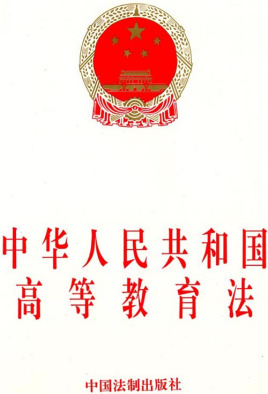
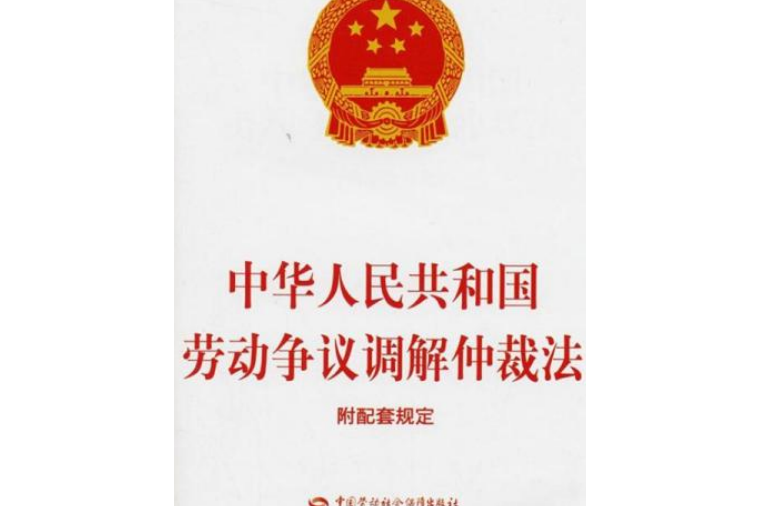
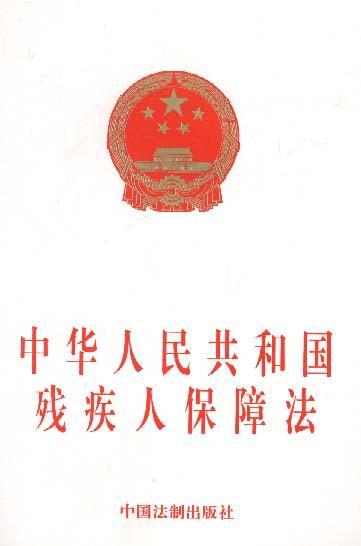
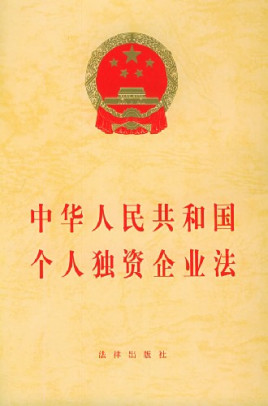
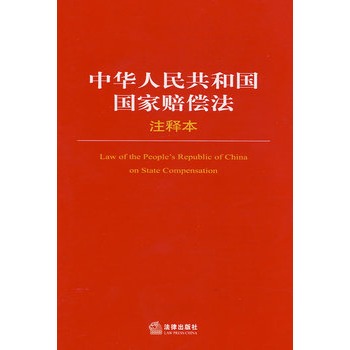
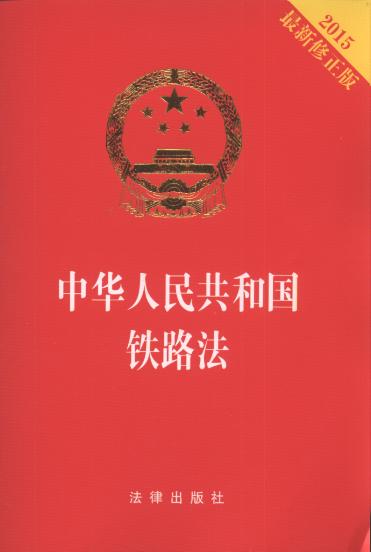
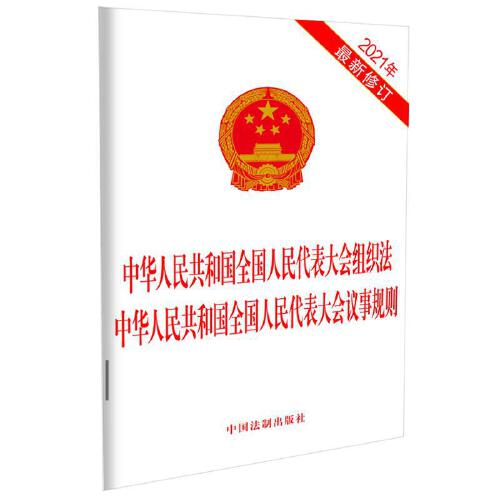


發表評論 取消回複